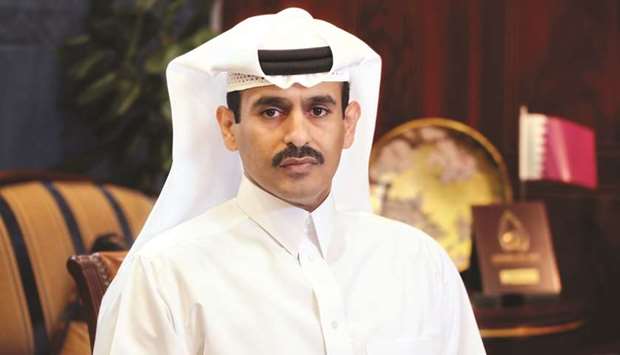“I would like to thank the four countries for their blockade, because it has made Qatar stronger, the people of Qatar stronger, their businesses stronger. We will come out of this much stronger than before,” he said in an interview with Al Jazeera.
Al-Kaabi said he was positive about the future of Qatar’s oil and gas industry: “We will continue to dominate the gas market and be the leader in the gas market for the foreseeable future....We are going to grow in a major way internationally in the oil and gas sector...”
Most of Qatar’s almost 80mn tonnes of annual LNG supplies are shipped in tankers to different countries. The air, sea and land restrictions imposed by its three Gulf neighbours have not so far affected maritime routes for Qatari LNG vessels, which can pass through the Strait of Hormuz.
The QP official explained that they supply LNG to countries such as Japan, Korea, China, Taiwan, Thailand, Pakistan and India, as well as to the UAE, Kuwait, Jordan, Egypt, Turkey, Spain, France, Belgium, Poland, Germany and the UK.
“We supply to everybody that needs LNG. There is not a buyer of LNG that does not call on Qatar to supply it,” he noted. “Everybody was worried about supply, but ... these (blockading) countries cannot stop us from doing our business internationally, they can do minor things that I think will harm them in the long term more than us.”
According to al-Kaabi, the GCC crisis will not affect the output and Qatar will not cut off gas to the UAE - despite a ‘force majeure’ clause in the Dolphin gas pipeline agreement with the UAE. The Dolphin pipeline pumps around 57mn cu m of gas a day to the UAE.
“If you stop the gas, the biggest harm is to the people of the UAE. The people of the UAE are cousins, relatives, and friends... and we have nothing against them,” Kaabi said.
According to analysts and industry sources, a shutdown of the 364km Dolphin pipeline, which links Qatar’s giant North Field with the UAE and Oman, would cause major disruptions to the UAE’s energy needs.
And, in addition to the Dolphin pipeline, there are other agreements Qatar has signed with the UAE.
“We signed a new contract for 10 years supplying 200-300mn cu ft [8.5mn cu m] a day of gas, we also have a 15-year contract to supply Dubai with LNG shipment, so that’s about 40% of their requirement for electricity,” al-Kaabi said.
However, the QP CEO does not expect things to go back to normal.
“We will never go back to depending on one supplier,” he said. “The trust that we have built over the years has been broken overnight.”

